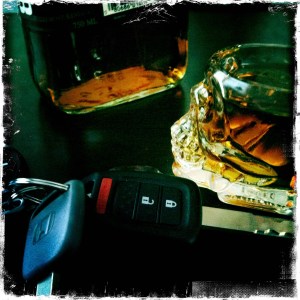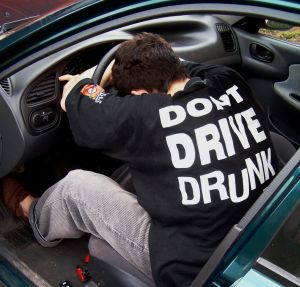Danger of Drunk Driving
You’ve heard the warnings a million times (at least). “Don’t drink and drive!” You know it’s good advice. You know it’s dangerous to do it. After all you could kill yourself, or someone else. And yet… Despite having plead guilty to a DWI charge in 2004, and telling the judge that he, “recognize[ed] the seriousness of this mistake. I’ve learned from this mistake and will continue learning from this mistake for the rest of my life”, The most decorated athlete in Olympic history, Michael Phelps has once again been charged with DWI. His BAC (blood alcohol content) was nearly twice the legal limit, it was reported. If that is true, Phelps wasn’t just a little buzzed, he was absolutely hammered. In New Jersey in 2012, 550 people died in motor vehicle accidents. Of those, 169 were DWI related. That means almost 31% of the fatalities that occurred may have been completely preventable if alcohol wasn’t involved. And still people continue to not only fail to heed this advice, they fail to learn from their own mistakes.
Legal Consequences for First-Time DWI Offenders in New Jersey

The legal consequences for being convicted of DWI in New Jersey, even for a first offense, are severe. N.J.S.A. 39:4-50, Driving While Intoxicated, sets up a two tier system for establishing intoxication. For a first offense, if the driver’s BAC (blood alcohol content) is at least .08 percent but less than .1 percent, a defendant will be considered per se intoxicated, and will fall into the first tier. They will be subject to a 3 month loss of driving privileges, will be fined between $250 and $400, must be detained in the Intoxicated Driver’s Resource Center for a period of 12 to 48 hours (to be served during two consecutive days), and a judge may additionally incarcerate a defendant for up to 30 days in county jail. If a driver has a BAC of .1 percent or higher, they will again be considered per se intoxicated, but will fall into the second tier. A second tier offense will require a driver to lose their license for a period of at least 7 months and up to 1 year, to be determined by the judge. The fines will be between $300 and $500. The other penalties remain the same.
Escalating Penalties for Repeat Offenders
There is no tier system for a second, third, or subsequent offense. A second offense for DWI in New Jersey carries fines of $500 to $1000, a mandatory 2 year license suspension, a mandatory 30 days of community service, a mandatory 2 days in county jail up to a potential 90 days, and will have to install an interlock device on their car once they get their license back, which requires the operator of the car to provide a breath sample for the machine in order to get the car started. The fines and penalties for a third or subsequent offense of DWI in New Jersey are designed to stop a repeat offender in his tracks, and take them off the road for a long time. The penalties include a mandatory $1,000 fine, a mandatory 10 year loss of license, and a mandatory 6 months in jail.
Criminal Charges Associated with DWI in New Jersey

DWI in New Jersey is charged under Title 39, which is the motor vehicle code, and is therefore not considered a crime. However, the potential to be charged criminally in conjunction with a DWI offense are extremely high. Aside from the numerous aggravating factors and subsections of 39:4-50 which enhance sentencing or result in additional DWI charges such as driving under the influence with minors in the car, or through a school zone, certain actions will result in criminal charges.
Being so highly intoxicated that your driving is absolutely out of control, if done in the presence of other motorists or pedestrians, and you are creating a substantial risk of serious physical injury, you will likely be charged with Reckless Endangerment charge under 2C:12-2. If a driver has actually injured another person (even slightly) due to driving under the influence, they will be charged with Assault by Auto under 2C:12-1c(2), which is a third degree indictable offense, or with 2C:12-1c(3) if serious bodily injury occurs, which is a second degree indictable offense. These offenses expose a defendant to the potential of a state prison sentence. If, God forbid your actions result in the death of another human being while you are driving while intoxicated, you will be charged with Death by Auto under 2C:11-5, which is a first degree indictable offense under this subsection. The statutory maximum term of imprisonment is 20 years.
The presumptive range of imprisonment for a first degree indictable offense in New Jersey is 10 to 20 years. The Death by Auto statute requires the judge to impose a mandatory state prison sentence of one third to up to one half of the total sentence which must actually be served in a state prison before a defendant becomes eligible for parole. This is mandatory. That means that the best a defendant could expect if convicted of Death by Auto, is a 10 year state prison sentence, 3 years of which must actually be served in state prison.
The Real-Life Costs of Ignoring DWI Warnings
As a New Jersey DWI attorney, and veteran criminal defense attorney, I have represented clients charged with DWI and the most serious of criminal charges associated with DWI. The consequences of ignoring advice you already know to be true can be devastating to you, your family, and members of society. Aside from the serious legal consequences, the emotional and psychological consequences are unimaginable. This is a mistake that can ruin your life, and the lives of others.
